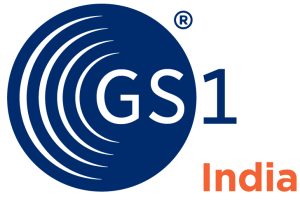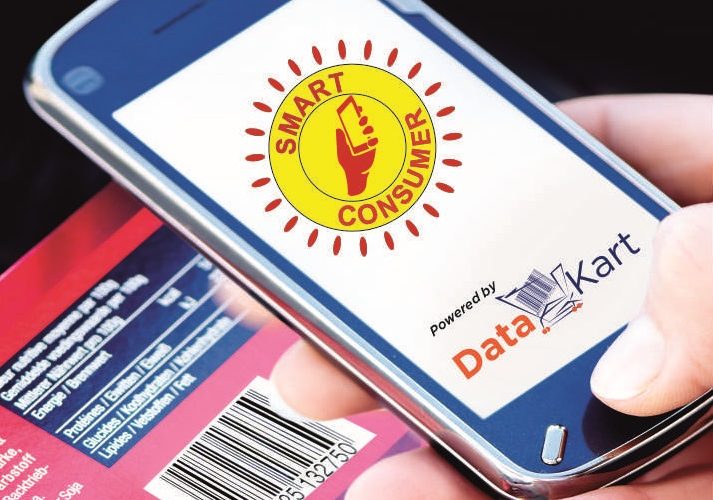Product traceability is the ability to identify, track, and trace products as they move along the supply chain. The product information is linked to a traceability system with the help of barcodes which allows businesses to extract information on Who (with whom), What (is the product), Where (with which trading partner), When (at what time), and Why (why was it scanned). Authorised people can scan the barcodes to know all these details using a scanner.
This empowers businesses with quality control, systematic information sharing, more transparency, and continuous monitoring of products in the market. The role of traceability is overarching, it benefits not just the manufacturers but also the retailers, distributors, and the end consumers.
Benefits of Product Traceability for Consumers
- Ensures Food Safety
- Provides Nutritional Information
- Supports Ethical and Sustainable Practices
- Builds Trust and Confidence
- Facilitates Recall Management
These are the Some Types of Benefits of Product Traceability for Consumers
Ensures Food Safety
Product traceability allows businesses to ensure the quality and safety of food products. By tracking the product journey, right from production to transportation, businesses can trace food contamination and recall the lot quickly.
Provides Nutritional Information
With product traceability, brand owners can share important product information such as direct human contact with food, product authenticity, hygiene checks, etc. with the consumers. Consumers can leverage this information to make an informed purchase decision and be safeguarded from adulterated or counterfeited products.
Supports Ethical and Sustainable Practices
Consumers can check if the products are produced in an environmentally safe and socially responsible environment by tracing the origin of food products. They can do their part in fostering a sustainable future by purchasing products that are not made using toxic raw materials or are detrimental to the society and environment.
Builds Trust & Confidence
Barcodes are a source of reliable information which can be scanned at any point and by anyone boosting the trust and confidence of the consumers.
Facilitates Recall Management
A robust recall process calls for transparency in the supply chain. When product information is readily available it will facilitate better and timely recall management practices for products. When product damage or contamination is identified at an early stage, cases of consumer dissatisfaction will be fewer.
Reasons why consumers demand product authenticity
- Health protection
- Safety
- Performance
- Values and ethical reasons
Health Protection
Consumers today have become extremely cautious about their health. They are very particular about the type of food products they buy and consume. Barcodes empower such consumers with more accurate information which can be trusted. It provides necessary information such as product ingredients, origin, composition, expiry date, manufacturing date, allergens, nutritional information, and more. This information prevents consumers from consuming products that may affect their health.
Safety
By scanning barcodes on products consumers can know the source of origin, and manufacturing unit, and can verify its originality. This can prevent consumers from purchasing counterfeited products and ensure their safety. Barcodes serve as a guarantee of genuine and safe products to consumers.
Performance
Some products are sold because of the best-in-class performance they provide. Verifying product authenticity of such products prevents consumers from buying from inauthentic sources. In a market where suppliers are numerous and can provide multiple copies of an original product, it becomes even more crucial to ensure the product is authentic.
Values and ethical reasons
Consumers want to support businesses that work with integrity and are aligned with a greater good such as sustainability. Consumers therefore identify the authenticity of the products and do not buy any counterfeited products.
Authenticity beyond the product
Products are the mouth of the brand. They speak on behalf of the companies and when counterfeited products of such brands exist in the market it deteriorates the brand image. Consumers develop a negative impression of the brand in their mind which in turn impacts the revenue and profit of the brand.
Therefore, authenticity plays a dual role; it empowers consumers and at the same time differentiates businesses from other counterfeited products available in the market. This results in building healthy long-term business and consumer relationships, supreme customer satisfaction, and goodwill for the brand.
What are some ways that businesses use to authenticate their products?
- Verified by GS1 – Verified by GS1 is a global platform that can be used to scan or verify product authenticity. Consumers or businesses can enter details of the GTIN, Global Location Number (GLN), and other GS1 ID keys, in the platform to know whether that product is verified by GS1 or not.
- Smart Consumer App – Smart Consumer App allows consumers to validate the information source easily. Consumers can scan barcodes and verify details such as manufacturer, origin, and nutritional information. Brands can leverage the platform to directly promote their products to consumers.
- Authorised Barcodes – When registering for barcodes companies should always register with authorised institutions only. In India, it is GS1 India which provides barcodes that comply with global best practices and standards. Barcodes issued by GS1 are accepted worldwide as well.
Why do businesses need to protect their products from counterfeits?
Counterfeited products are a grave danger to industries, the economy, innovation, trade, health, safety, and the environment. It also impacts the reputation of a brand and decreases the satisfaction levels among consumers. Every year, the Indian economy incurs losses in crores because of the prevalence and existence of counterfeited products in the market. Lack of consumer awareness further makes the situation critical making it extremely important to adopt a standard-based service to detect and deter the adoption of such products. Product authentication can therefore prove to be a masterstroke in our industry.
Frequently Asked Questions
1. How does product traceability differ from product tracking?
Product traceability is the process of tracing the complete journey of the product starting from the production to the consumer. Tracking refers to keeping a record of the entire product details.
2. Is product traceability mandatory for all industries?
Product traceability is not mandatory in all industries; however, it is advised to have a traceability system in place for all products to streamline operations.
3. Are there specific regulations governing product traceability?
Yes, the GS1 Global Traceability Compliance Criteria Standard provides regulations to build compliance with traceability. It is the basis for ensuring key compliance and traceability protocols to implement a traceability system in the industry.
4. What information is typically included in a product traceability system?
A product traceability system provides data such as quality control results, handling and storage conditions, final routes, distribution channels, and raw materials. This information is crucial in tracking and tracing the product journey.
5. How do companies implement product traceability in their supply chains?
Companies can implement product traceability in supply chains with the help of traceability systems such as Datakart Trace. They can keep complete track of product inventories to ensure they do not send lots earlier than they have been consumed in the markets.
6. How does product traceability benefit retailers?
Retailers benefit from accurate and complete information on product SKUs. This reduces their dependency on third-party sources since they get information directly from a centralised product repository that is being updated almost on a real-time basis.
7. What role does product traceability play in food safety?
Food traceability is the cornerstone of providing consumers with safe and healthy food choices. Food contamination can be identified early which can speed the recall process with traceability. When all safety and regulatory standards are met, consumers will be safeguarded from consuming a contaminated product.
8. Can product traceability help reduce waste in the supply chain?
Yes, by having a comprehensive record of the products in the market, businesses can avoid overstocking and stockouts. This in turn will benefit the environment as less waste will be recorded.
9. Does product traceability only apply to perishable goods?
No, product traceability can be applied to all types of goods, whether they are perishable or non-perishable. Businesses aim to reduce waste, track product journeys, ensure quality, etc. which can all be achieved through a traceability system.









